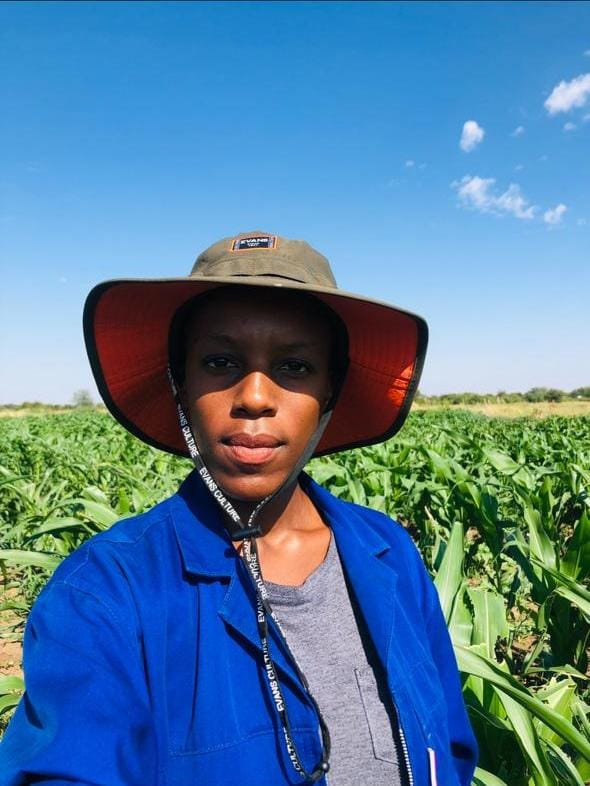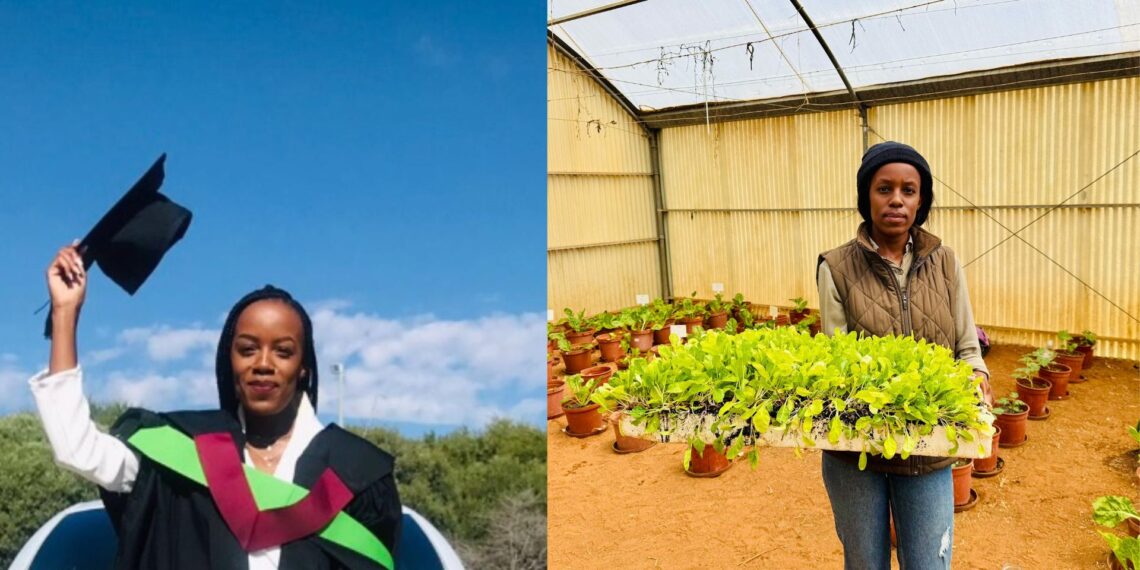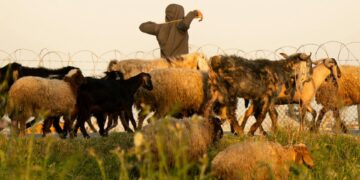Mzansi needs more than hope to face the challenges of climate change, poverty, and food insecurity. Real change depends on skills, innovation, and people who are committed to shaping a sustainable agricultural future. And that’s exactly what agronomist Mandisa Mazibuko is doing.
She champions agriculture with a purpose, amplifying its role and giving back to both the land and the communities it sustains.
Mazibuko still remembers the long school holiday drives from Geluksburg, between Bergville and Ladysmith in KwaZulu-Natal, to her grandfather’s home in Thintwa village, straddling KwaZulu-Natal and the Free State.
Rolling past fields that were green, yellow, purple, or brown, depending on the season, piqued her curiosity and made her start asking questions about the land.
Curiosity for plants blooms
Her grandfather, Mandlenkosi Hadebe, worked on farms. Watching him rise before dawn to tend to the animals made her wonder about the process and the reasons behind each task. Sometimes he would take her along to milk the cows, a part of the day she loved most.
“That’s when I realised farming isn’t just for men. Women can do it too,” Mazibuko says.

While everyone around her focused on animals, she noticed how little attention was given to plants. That observation sparked her interest in crops and ultimately led her to agronomy.
Already in grade seven, she was determined to study agriculture, making sure to excel in subjects like maths and science. After matric, a gap year tested her patience as she waited for university acceptance, watching peers start their own journeys.
Her persistence paid off when she was accepted at the University of North-West. She completed a diploma in 2019, followed by a BSc in 2022.
Today, Mazibuko is pursuing her MSc, building on the curiosity and passion that started on those long drives and early mornings on the farm.
Related stories
- Trees: more than just shade – a climate change ally
- Indigenous crops: The climate-smart superfoods we need
- ‘Prioritise soil health and improve fertiliser use in Africa
Difficult days pay off
The most fascinating thing about plants is that there is always something new to learn from their interaction with the soil and the role they play in the ecosystem, Mazibuko explains.
She adds that, despite all she has achieved, she still sees herself going far in agronomy, with more research and discoveries ahead.
Mazibuko credits education with showing her that nothing is impossible when you put in extra effort.
“At university, I had to bridge from mathematical literacy to full mathematics. I spent countless hours in the library and worked harder than ever.”
Those extra hours shaped her into an academic.
“It was difficult. Some days I felt like giving up, but the words of Mr Thato, a chemistry lab technician during my first-year diploma, kept me going. He told me that even without a strong background in science, if I worked hard and remembered why I was here, nothing could stop me.”
She says those words have guided her from her diploma days until now.
During her undergraduate studies, she joined the North-West University Green Campus Initiative as a project coordinator, helping to establish vegetable gardens in student residences.
Promoting sustainable agriculture
Currently, she is conducting trials for her MSc project, studying the effects of different poultry manure rates on selected maize cultivars and soil minerals under both irrigated and rainfed field conditions.
“My research focuses on organic manure because it is affordable and benefits the soil, the crops, and the environment,” she explains.
“As a country, we are facing significant climate shifts. My research is about identifying maize cultivars that perform well under both rainfed and irrigated conditions.”
She adds that using organic manure is her way of promoting sustainable agriculture and encouraging farmers to recycle nutrients from poultry for crop production.
“For me, the most important part of this research is producing results that farmers can relate to and apply, while also contributing to the wider agricultural industry.”

Now a full-time student at North-West University, she also works as an instructor for crop production practicals, both in the field and the laboratory, under the crop science department.
She assists undergraduate students with data collection, plant growth maintenance, and class tests.
This work, she says, reminds her of the little girl she was when she first entered university. She tells Food For Mzansi that she ensures students receive the support they need because she remembers how valuable that support was for her.
ALSO READ: From an apricot tree, a career in agronomy blooms


















